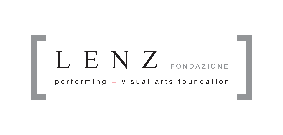MARIA FEDERICA MAESTRI
 Director and visual artist, she spent her childhood in Rome and in several foreign countries, Turkey, Libya, Spain. Since 1970 she has lived and worked in Parma, studied at the D.A.M.S. in Bologna and in 1985 she founded, together with Francesco Pititto Lenz Rifrazioni, today a Foundation, a rigorous research formation engaged in a continuous work of investigation on the scenic language.
Director and visual artist, she spent her childhood in Rome and in several foreign countries, Turkey, Libya, Spain. Since 1970 she has lived and worked in Parma, studied at the D.A.M.S. in Bologna and in 1985 she founded, together with Francesco Pititto Lenz Rifrazioni, today a Foundation, a rigorous research formation engaged in a continuous work of investigation on the scenic language.
Since 1991 she has directed the Theatre Practices Workshops, a training course for the learning of scenic languages and Social Theatre Practices, and the design of theatre awareness courses for disabled actors. Since 2000, in close collaboration with the Department of Mental Health of the AUSL of Parma, she has been running a permanent workshop for actors with psychic sensitivity, a project that won the national ARETÊ Award of the Ministry of Communications in 2007 for the best responsible communication in Italian theatre. In 1999-2000 Him-light and Ur-Faust were performed in international festivals and exhibitions including the Festival del Teatro d’Europa del Piccolo in Milan and the Teatro Farnese in Parma.
From 2001 to 2006 an intense activity of tours abroad of the most significant productions: in 2002 snow-white was selected for the Rencontres Franco-Italiennes de Théâtre et de Danse, then on tour in the most important European capitals. In 2004 Life is a dream is at the Almagro Classical Theatre Festival, the most prestigious baroque theatre festival in Spain. In 2005, Il Magico prodigioso from Calderón made its debut again at the Almagro Festival and Burgos in 2006. In the same year made its debut in Alméria The Constant Prince, as part of the International Festival XXIII Jornadas de teatro del Siglo de Oro.
In 2006 she directed and set designed La Sirenetta – a production included in the official World Celebrations of Andersen – and Alta Sorveglianza from Genet. Since 2007 her work is characterized by a more complex and articulated installation and visual action that leads the artist to create performative environments and macro-installations in important architectural and monumental complexes. In 2007 she curated the creation Radical Change, a contemporary performative rewriting in ten paragraphs inspired by Ovid’s Metamorphoses.
In 2008, together with Francesco Pititto, who was in charge of the adaptation and the visual system, she created a complex stage set in the Reggia di Colorno, the first staging of the opera The Ballad of Little Red Riding Hood by García Lorca, original music by Robin Rimbaud aka Scanner. In 2009, La Grande Cicatrice and Exile, free writings by Ovid’s Sadness. With Dido (2010) creative residence at the Parrága Centre in Murcia, the project dedicated to Ovid comes to an end. In 2010 she was invited to Evora (Portugal) in an important international seminar promoted by the Prague Quadrennial entitled On Curating Scenography Expanding 3 and in the same year she realized the macro-installation of the Hamlet in the Rocca dei Rossi in San Secondo and in 2011 in the rooms of the Reggia di Colorno.
As part of the contemporary music festival Traiettorie, in 2010 she created the scenic space of The box, a musical work by Franco Evangelisti performed by the ensemble Prometeo directed by Marco Angius, with the instrumental supervision of Salvatore Sciarrino and the dramaturgical-visual reworking of Francesco Pititto. In 2011 the direction of The Isle of Dogs. At the end of 2011 the launch of Aeneas, a two-year project dedicated to the Virgilian Aeneid, for which she is responsible for the creation of the scenic space and the direction. In 2012 she is responsible for the mise-en-site, installation and direction of Hamlet at the Teatro Farnese in Parma, an exceptional event in its stand between cultural innovation and social sensitivity, between history and contemporaneity, between world heritage and performing art. Also in 2012 Aeneis in Italy, the second stage of the Aeneid. In 2013, Kleist’s Pentesilea and The Betrothed are receiving great public and critical acclaim. In 2014 she directed two works: Hamlet Solo and The glory from D’Annunzio, on the rhetoric of power. In 2014 she directed Adelchi, Lenz’s second work on Manzoni’s masterpiecies after the monumental The Betrothed (The Betrothed). She is responsible for the set design of Verdi Re Lear, commissioned by the Festival Verdi. In 2015 she curated the site-specific project The Furious, from Ariosto, creating large installations in monumental complexes in the province of Parma. In 2016 Kinder on the persecution of Jewish children. Again commissioned by the Festival Verdi, she directed and staged Auto-da-fé from Don Carlo by Giuseppe Verdi in the former prison of San Francesco.
In 2017 Action T4, on the euthanasia of the disabled during Nazism, and a series of installations in unconventional spaces: This Weak Strength at the National Archaeological Museum, Purgatory at the cruise of the former Old Hospital of Parma and Paradise, a sacred piece at the North Bridge – Festival Value 2017 commission. In 2018 she staged Rosa Winkel on the persecution of homosexuals and began the three-year project dedicated to Calderón de la Barca with the staging in different spaces of the Pilotta Complex, of The Great Theater of the World. She creates Verdi Macbeth, commission Verdi Festival 2018. In the same year the staging of Iphigenia in Aulis, by Euripides and Gluck and in 2019 that of Iphigenia in Tauride. Also in 2019 she curated The life is dream installation in the North Wing of the National Gallery in the Pilotta Monumental Complex.
In 2020 the three solos Other State, Flowers like stars? and violent hippogriff will make their debut as part of the project The Imminent Past for Parma Italian Capital of Culture 2020, which will end in June with Life is a dream, a great theological-philosophical drama that will be staged in the spaces of the Pilotta Monumental Complex.








